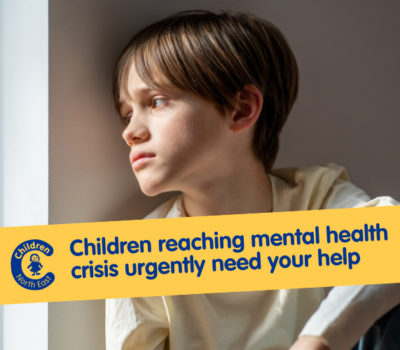Young voices have spoken: they want Change Now
Children North East is proud to announce the publication of its most recent report, Change Now: the largest consultation it has conducted to date.
Consolidating learning from consultations with children and young people carried out since 2020, it brings together the voices of over 35,000 children and young people into a single report with a number of key recommendations for the North East of England.
At the heart of Children North East is the desire for all children to be happy and healthy, safe and loved, resilient to challenges, and valued and confident. In order to achieve this mission, hearing – and listening to – first-hand experiences and feelings of young people across the North East is paramount. This report puts the voices of children and young people at the centre of understanding what’s important to them.
With equality, empowerment and building relationships as core values, Children North East is excited to have completed a framework that embodies all three. Through this milestone publication, it ensures that those involved in improving key services – increasing children’s quality of life and opportunities – are informed by lived experiences of a wide range of young people across the region.

So as to gather a truly full picture of young people’s lives and recommendations, the themes of consultations and projects were many and varied. Commissioned for a variety of purposes, all asking questions of children and young people in different contexts, every single one had children and young people – and their futures – at the centre.
The largest consultation, Poverty Proofing the School Day, focused on socioeconomic status and its impact on the school day. The Voices project was the next largest number of participants, concentrating on the impact of Covid-19. The Now and Next consultation had over one thousand voices; this explored Culture and Creativity in Newcastle and Gateshead. Other consultations, whilst smaller, focused on specific areas (including accessing health settings and safety) – providing valuable insight and visibility into a broader picture.
Despite this wide variety of consultations, common themes were easily identified. They were split into the following main categories:
- School and Education;
- Learning Disabilities and SEND;
- Relationships and Communication;
- Health and Wellbeing (including acceptance and inclusion) (substance misuse);
- Protected Characteristics;
- Digital Lives;
- Culture;
- Covid-19;
- Services and activities outside of school (including transport).
Naturally, there is much interconnection and cross-over between these themes, as they govern and influence so many aspects of young people’s lives.

Some of their key recommendations regarding school and education were for them to be taken seriously, feeling their opinions are sought in a tokenistic way and not fully valued. It is clear that ‘school councils’ are not always representative of all children and young people. Staff training was another main issue, with respondents wanting all school staff to be comfortable, confident and knowledgeable on the subjects which matter to young people including areas such as mental health, LGBTQ+ inclusion, gender and poverty.
There was also a call for consistency in the way individuals are treated and how racism and bullying is addressed. Poverty awareness was also found to be lacking – respondents sought equality across the school day including accessing food, uniform, extra-curricular activities and trips. They want to not face stigma, shame, or additional obstacles to learning because they are living in poverty.
The current economic climate, as well as the evolution of, and access to, technology have made their mark on our younger generations. Children and young people are struggling more than they ever have before with their emotional wellbeing. They want help to build resilience and deal with the challenges they face. It was also mentioned that education pressures limit time for creative expression as a coping mechanism. Respondents asked that creativity be acknowledged as vital in developing good emotional wellbeing and given higher priority in schools.
Whilst technology and digitalisation are a significant part of children and young people’s lives – particularly since the pandemic – there remains a digital divide, which needs to be addressed. One key recommendation was that students shouldn’t be punished when unable to access digitised work. There were also calls for a digital curriculum to be built, based on what they enjoy.

Two consultations, SEND Health and The Learning Disability and Autism Programme, spoke with children and young people with SEND exclusively. Other consultations included children and young people with SEND or additional needs, such as Poverty Proofing© the School Day and The Inclusion Audit – their voices were particularly thought-provoking around the development of information around SEND.
Children and young people talked about how they access services and are supported in Health and Education settings, with particular reference to communication and how they are listened to. Many children and young people with additional needs felt that this required improvement.
The Change Now report found that neurodiverse children and young people want communication to be direct, age appropriate and regular with normal language – they don’t want to be talked down to and want to be kept informed about what is happening.
There was also a recommendation that the Keyworker service be expanded, with more awareness of the role among professionals and families and autistic young people.

Clearly, there needs to be the investment of time, money and policy change to support these recommendations and build consistency across schools, health services and Local Authorities in the North East.
Ultimately, children and young people want to be listened to effectively, as the ‘experts in their lived experience’. This means fully listened to, with their opinions and thoughts taken seriously and suggestions acted upon. Only then will this viably reflect Article 12 of the United Nations Convention on the Rights of the Child 1989: the right to be heard.
The overwhelming factor underpinning all the recommendations is that children and young people do not feel listened to and valued. There needs to be significant change – at all levels – in approaches to, and engaging with, children and young people on the things which impact them.
There needs to be change, now.
For a copy of the Children North East Change Now report, click here.
For more information about the Change Now report email Billie Jenkins, Communications and Fundraising Manager at [email protected].
To donate to Children North East, or to get involved in fundraising campaigns, visit ‘How You Can Help’ on the website.



















